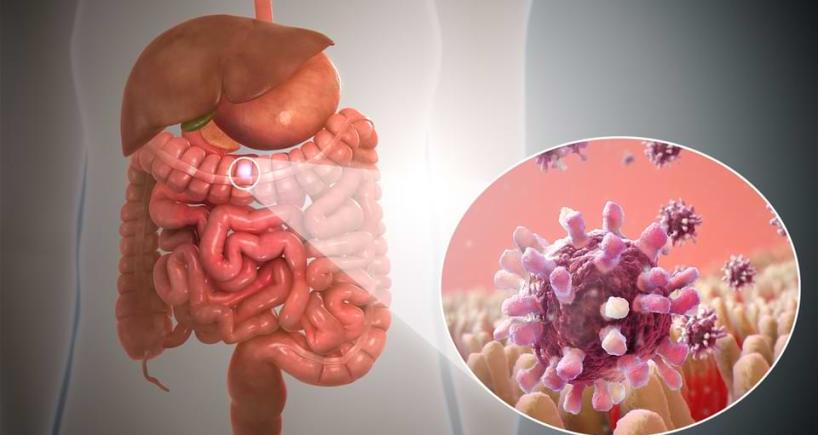
Understanding Digestive Cancers: Types and Prevention
Digestive cancers encompass a range of malignancies affecting various organs along the digestive tract, including the esophagus, stomach, pancreas, liver, colon, and rectum. These cancers pose significant health challenges globally, but awareness and preventive measures can play a pivotal role in reducing their incidence. Understanding the different types of digestive cancers and adopting preventive strategies are crucial steps in combating these diseases.
Symptoms of digestive cancers vary depending on the specific type but may include persistent indigestion, abdominal pain, unexplained weight loss, changes in bowel habits, and difficulty swallowing. Risk factors encompass lifestyle choices such as smoking, alcohol consumption, diet high in processed meats, family history, chronic inflammation, and certain infections like H. pylori and hepatitis.p
Types of Digestive Cancers:
1. Esophageal Cancer:
The tube that takes food from the throat to your stomach, that’s called the esophagus, where esophageal cancer develops. Squamous cell carcinoma and adenocarcinoma are the two known main types. Squamous cell carcinoma typically arises in the upper and middle parts of the esophagus, while adenocarcinoma often occurs in the lower part, near the stomach.
2. Stomach Cancer:
Also known as gastric cancer, stomach cancer affects the lining of the stomach. It often develops slowly over many years. Risk factors include infection with Helicobacter pylori bacteria, a diet high in salted, smoked, or pickled foods, and smoking.
3. Pancreatic Cancer:
The pancreas is an organ that is located behind your stomach, it’s where pancreatic cancer develops. It is usually diagnosed at an advanced stage, which makes it challenging to treat. Risk factors include smoking, obesity, chronic pancreatitis, and family history.
4. Liver Cancer:
Liver cancer can originate in the liver itself (primary liver cancer) or spread from other parts of the body (metastatic liver cancer). Chronic infections with hepatitis B or C viruses, excessive alcohol consumption, obesity, and exposure to certain chemicals are among the risk factors.
5. Colorectal Cancer:
Colorectal cancer affects the colon or rectum and is the third most common cancer worldwide. It typically begins as a small growth, which is called a polyp, that develops to be cancerous over time. Risk factors include age, family history, inflammatory bowel disease, and a diet low in fiber and high in red or processed meats.
Prevention Tips for Digestive Cancer:
1. Maintain a Healthy Diet:
Consuming a balanced diet rich in fruits, vegetables, whole grains, and lean proteins can help reduce the risk of digestive cancers. Limiting intake of processed and red meats, as well as avoiding excessive alcohol consumption, is advisable.
2. Quit Smoking:
Tobacco use is a significant risk factor for various types of cancer, including those affecting the digestive system. Quitting smoking can substantially lower the risk of developing these cancers and improve overall health.
3. Stay Active:
Regular physical activity not only helps maintain a healthy weight but also reduces the risk of several types of cancer, including colorectal cancer. Aim for at least 150 minutes of moderate-intensity exercise per week.
4. Screenings and Early Detection:
Routine screenings, such as colonoscopies for colorectal cancer and endoscopies for esophageal and stomach cancers, can detect precancerous conditions or early-stage cancers when treatment is most effective. Follow screening guidelines recommended by healthcare professionals.
5. Vaccinations:
Vaccines against hepatitis B and human papillomavirus (HPV) can prevent infections that increase the risk of liver and certain types of esophageal cancers, respectively. You can discuss with your doctor about vaccination options.
6. Manage Chronic Conditions:
Conditions such as chronic pancreatitis, inflammatory bowel disease, and hepatitis increase the risk of digestive cancers. Proper management of these conditions through medication and lifestyle modifications can help lower the risk.
Digestive cancers represent a significant public health concern worldwide, but adopting preventive strategies can reduce the risk of developing these diseases. By making healthy lifestyle choices, undergoing regular screenings, and managing chronic conditions, individuals can take proactive steps to safeguard their digestive health. Increased awareness and access to healthcare resources are essential in the fight against digestive cancers.
Categories
Clear allMeet the doctor

- Oncology | Medical Oncology | Oncology
-
15 Years
-
1000



















